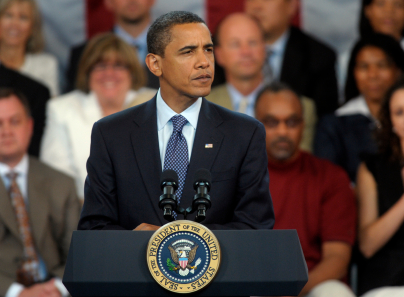 |
In any election, especially a presidential one, candidates want to make sure that the media is accurately presenting their message to the masses.
It comes with an understanding that those journalists have a job to do, which is to responsibly report the news and fairly critique the candidates' messages.
The media’s coverage of politics is expected to be unfiltered so that constituents can make the best decision on the information given.
But have readers been wrong in assuming that what they’re reading in print or online is actually what the candidates or campaign staffers said?
In this 2012 presidential campaign, that may not exactly be the case.
A recent New York Times report revealed the teams of both President Obama and presumptive Republican nominee Mitt Romney are demanding that reporters allow them final editing power over any published quotations.
The practice, according the report, is well-known around Washington, D.C., and is standard for the Obama team as the press office has veto power over what statements can be quoted and attributed by name.
“Quote approval is standard practice for the Obama campaign, used by many top strategists and almost all midlevel aides in Chicago and at the White House—almost anyone other than spokesmen who are paid to be quoted. (And sometimes it applies even to them.) It is also commonplace throughout Washington and on the campaign trail,” the New York Times report says.
From a PR perspective, there are two ways this can be viewed. On one hand, the communications team of President Obama has to make sure that nothing “gets out” that can reflect badly on him or that can be misinterpreted and used against him by the opposition. The president’s campaign has to do whatever it takes to make sure their message is presented in a way that is in line what the president is actually saying.
On the other hand, is the insistence of the Obama team to approve quotes showing the public it is practicing full transparency? Or is it giving off the perception that there’s something to hide?
The reasons why the campaigns would want complete control over the quotes are obvious. “The important issue to focus on here is ensuring that quotes accurately reflect what a candidate is trying to communicate. Readers are not well served if a quote is taken out of context or a news article presents a candidate in a way that does not reflect the candidates’ intended message,” says Derran Eaddy, senior communication specialist at Dougherty & Associates, Inc. “The media has a tremendous influence on readers’ impressions, so candidates should do all they can to ensure they are accurately represented in the media. Once a story is published, it makes an impact and it’s too late to go back and correct a misunderstanding.”
“As a PR professional I want to make sure that my client is fairly and accurately represented. I think that responsible journalism does allow for the journalist to go back to the subject and make sure they are accurately representing what was said,” says Brandi Williams, PR strategist for Studio B PR.
But when quotations go through such an intense vetting process, they often come off as obviously canned and, consequently, easily dismissed by readers and audiences. There's a big difference between successful media relations and media control.
Follow Jamar Hudson: @jamarhudson
